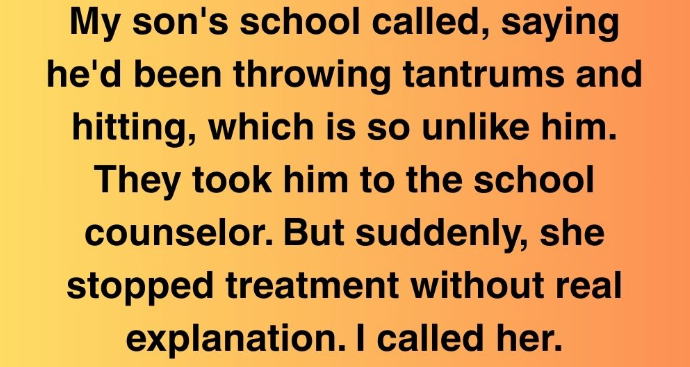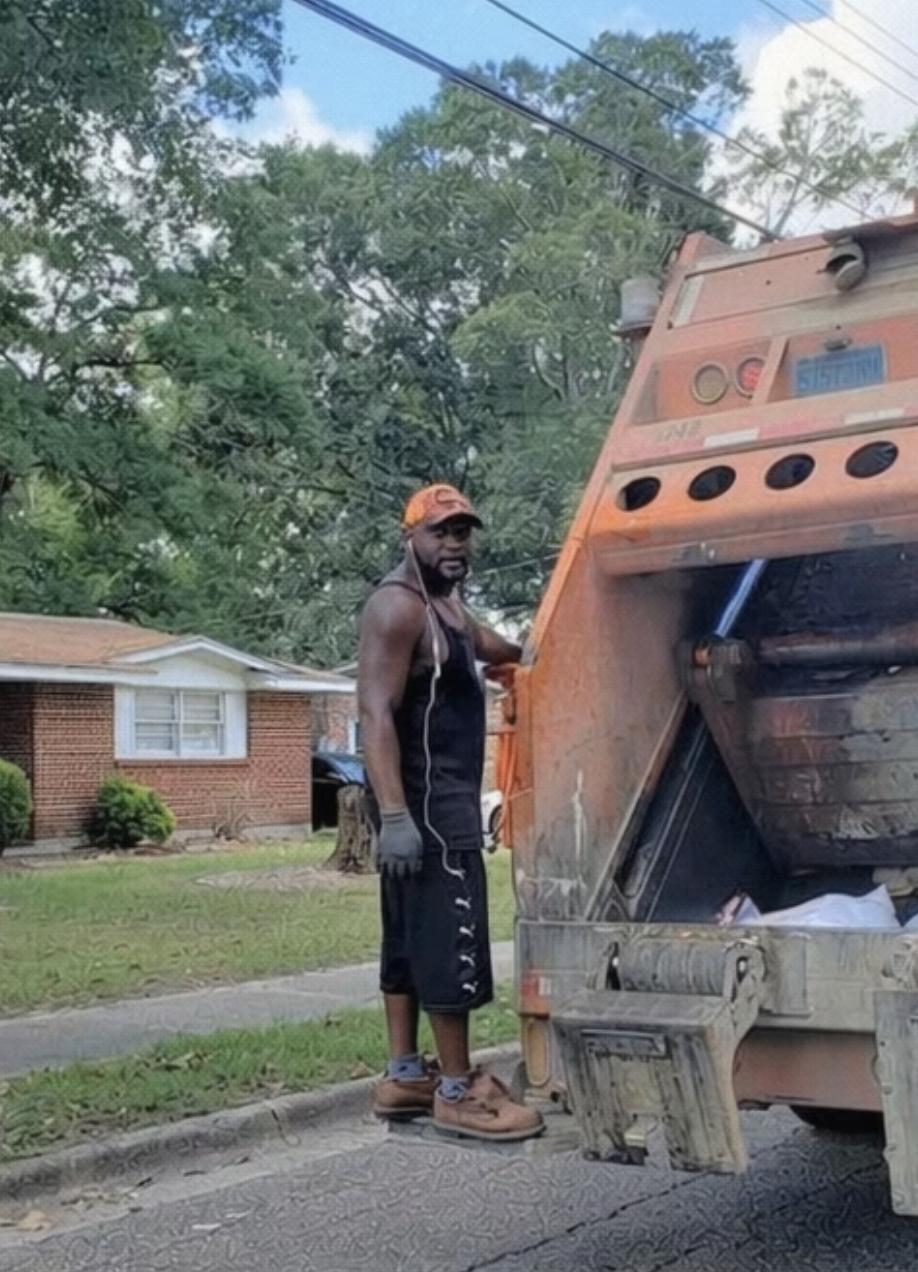My son’s school reached out, informing me that he’d been acting out—throwing tantrums and even hitting others, behavior completely out of character for him. They arranged for him to see the school counselor. Unexpectedly, she halted the sessions without providing a clear reason. I contacted her directly.
After some back-and-forth, she shared, “Your son was withdrawing during our meetings. It wasn’t defiance—it seemed like fear.”
That revelation hit me hard. Fear? In my seven-year-old? What could he possibly be afraid of?
We’d faced challenges, of course—his dad and I parted ways last year, and the transition had been tough—but I thought we were managing well enough.
I gently pressed the counselor for more details, asking if he’d mentioned anything specific. She paused, then said, “He spoke about not wanting to be taken away again. He wouldn’t elaborate, but I suspect something’s happening outside of school.”
That evening, I sat with him after dinner, just the two of us, no distractions. I asked, “Is someone making you feel unsafe?”
He stared at the floor, biting his lip. “Sometimes I go with Daddy’s friend. I don’t like him.”
My heart stopped.
“Which friend, sweetheart?”
He shrugged. “The bald one. He smells like smoke. He tells me I talk too much.”
I immediately called his dad.
He got defensive right away. “What, I can’t have a friend pick him up? I had a work emergency. He’s fine.”
“He’s not fine,” I countered. “You never told me someone else was picking him up from school.”
He snapped, “I don’t need to run every decision by you.”
I ended the call and contacted the school. The front desk confirmed that his dad had listed a “Mr. Vaughn” as an authorized pickup. They hadn’t verified his ID—just matched the name.
I had no idea this was happening.
That same day, I reached out to a lawyer.
Our custody agreement was technically 50/50, but my ex, Rafiq, had a more flexible schedule, so he had our son three school nights a week. I worked full-time at a bakery, often until 6 p.m.
After the counselor’s call, I restructured my work schedule, taking a pay cut to ensure I could pick him up from school. I didn’t care about the money—I needed to be there.
Within a week, his behavior improved. The tantrums stopped. But then another incident sent chills down my spine.
Another mom from his class, someone I’d only spoken to during field trips, called me. She said, “I hope I’m not overstepping, but last week, I saw your son get into a car with a man who didn’t look like his dad. He seemed really upset.”
“When was this?” I asked.
“Last Thursday, after school. I thought it might be family, so I didn’t say anything.”
It wasn’t family. I had him that Thursday. Rafiq wasn’t supposed to pick him up.
I reviewed the school’s security policy and learned they had cameras at the exit. I requested the footage. After a few days, I watched it, and my stomach churned.
There was my son, standing by the carpool line, fidgeting with his backpack. A man in a hoodie approached, said something, then grabbed his arm and led him to a dark SUV. My son didn’t fight back, but his face showed no joy.
I printed stills from the video and called my lawyer again.
We filed for an emergency custody hearing.
In court, Rafiq appeared confident—until we presented the footage. The judge asked him directly, “Do you know this man?”
“Yes,” he said. “That’s my cousin. He helps out sometimes.”
The judge’s eyes narrowed. “Did you notify the mother or the school about this change in pickup?”
“No.”
“Did you ensure this cousin was properly vetted for childcare?”
He hesitated. “He’s family.”
The judge wasn’t impressed. She granted me temporary full custody pending a thorough investigation.
I thought that was the end of it.
Then, a week later, I received a text from a blocked number: “This isn’t finished. Be careful.”
I reported it immediately. The police traced it to a burner phone, but that was as far as they could go.
My son started wetting the bed again and asking if the doors were locked at night. I gently asked him, “Did your daddy’s cousin ever say anything that scared you?”
He paused. “He said if I told anyone, he’d take me to the ‘bad house.’”
“What’s the bad house?” I asked.
He looked away. “Where the other kids cry.”
My vision blurred with panic. My heart raced so fast I felt faint.
I called the detective on our case and shared everything—the footage, the names, the phrases my son used. He promised to investigate but cautioned that without more evidence, his options were limited.
I asked my son to draw the “bad house.” He sketched a simple house with a tall fence and a red door.
On a hunch, I drove through the neighborhood where Rafiq’s cousin lived. I searched block after block until I saw it: a house with a red door and a tall fence. I noted the address and passed it to the detective.
A week passed. Then two. No updates.
Then, one Friday morning, the detective called. They’d executed a search warrant. The house was operating as an illegal, unlicensed daycare—completely unregulated. They found children there, some unattended, some in soiled clothes. The woman running it had a sealed record for child neglect from years ago.
They also discovered a side room with bolt locks on the outside.
I couldn’t catch my breath.
Rafiq’s cousin had been paid to bring kids to this place, marketed to parents desperate for affordable childcare. It wasn’t a daycare—it was neglect masquerading as care.
My son had been there once, for about two hours. That was enough to leave him traumatized.
When I confronted Rafiq, I expected him to deflect or argue. Instead, he broke down in tears. He claimed he didn’t know the full scope of his cousin’s actions, thinking it was just an “informal sitter.” I believed him—he’s careless, not malicious.
Still, I pursued full custody.
The judge agreed, granting supervised visits for Rafiq pending a long-term review.
My son resumed counseling. He’s improving, bit by bit. He’s starting to laugh again, sleep better, though loud knocks still make him jump. We’re working through it together.
Then came an unexpected turn.
The mom who alerted me about the car? She’s become one of my closest friends. She’d been through a similar ordeal with her niece years ago and recognized the signs of fear in my son’s eyes. She’s guided me through the court system and the complexities of trauma therapy.
Sometimes, I feel like she was sent to help me prevent a worse outcome.
Now, I’m paying it forward. I speak at PTA meetings, sharing our story and urging parents to verify pickup lists and know who’s around their kids. I nearly overlooked the signs, and if I had, my son might not be safe today.
He was almost lost right in front of me.
My life’s more complicated now, my work hours longer, but I’m at that school gate every day at 3:15 without fail.
Here’s what I’ve learned: Never assume people are doing what’s right simply because it’s expected. Ask questions. Verify details. Be persistent, even if it feels excessive. Your child’s safety outweighs anyone’s convenience.
If you’re a parent reading this, trust your instincts. If your child says they’re scared, take it seriously from the start.
Please share this with other parents. It could make a difference before it’s too late. Let me know if you’ve ever had to advocate for your child when no one else noticed the danger.




